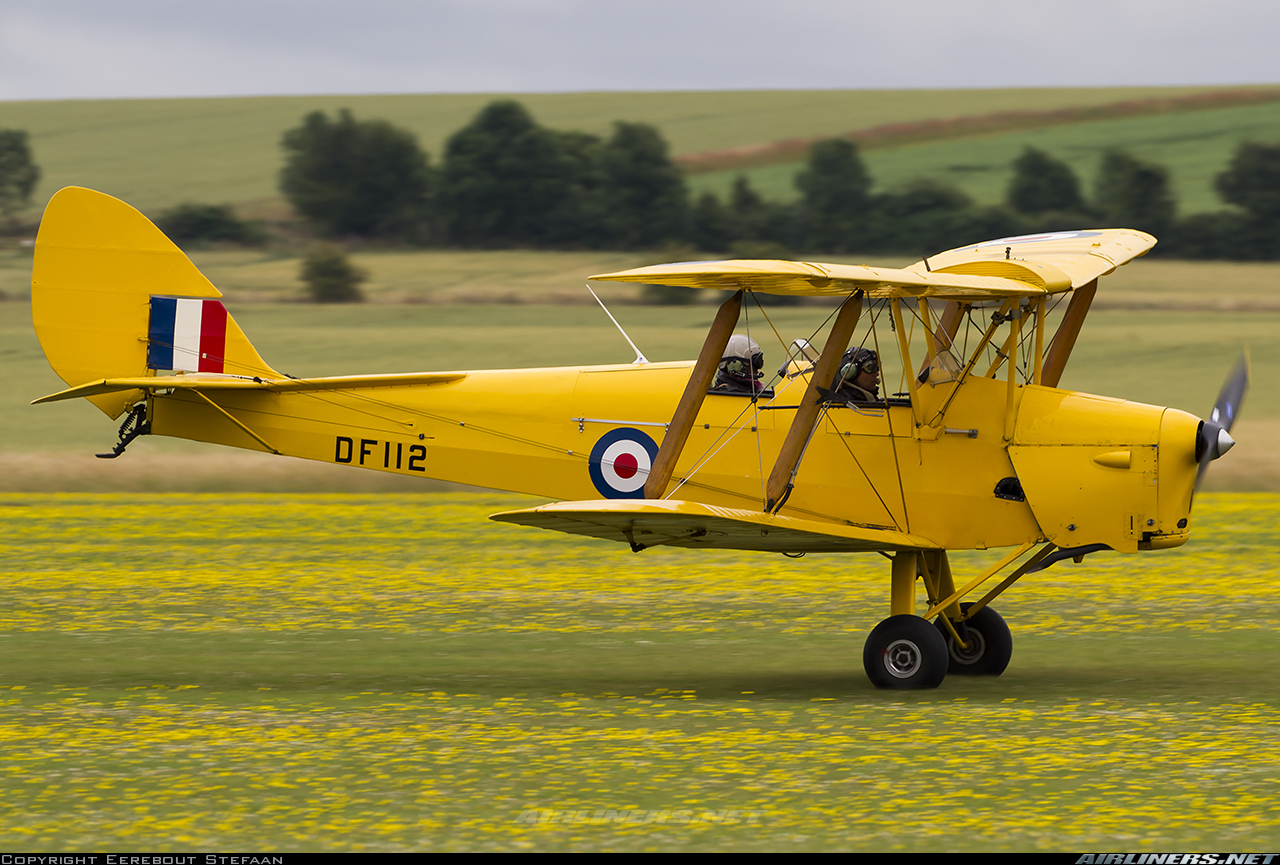
De Havilland DH82A Tiger Moth II Untitled Aviation Photo 3920183
De Havilland DH.82 Tiger Moth Back to 1919-1940 - Golden Age De Havilland DH.82 Tiger Moth Country: United Kingdom Year: 1934 Engine: Gipsy Major Horsepower: 120 Wingspan: 29 ' 4" Top Speed: 109 mph (175 km/hr) Gr. Weight: 1825 lbs (828 kg) Current Status: Active Length: 23 ' 11" Original/Reproduction: Original
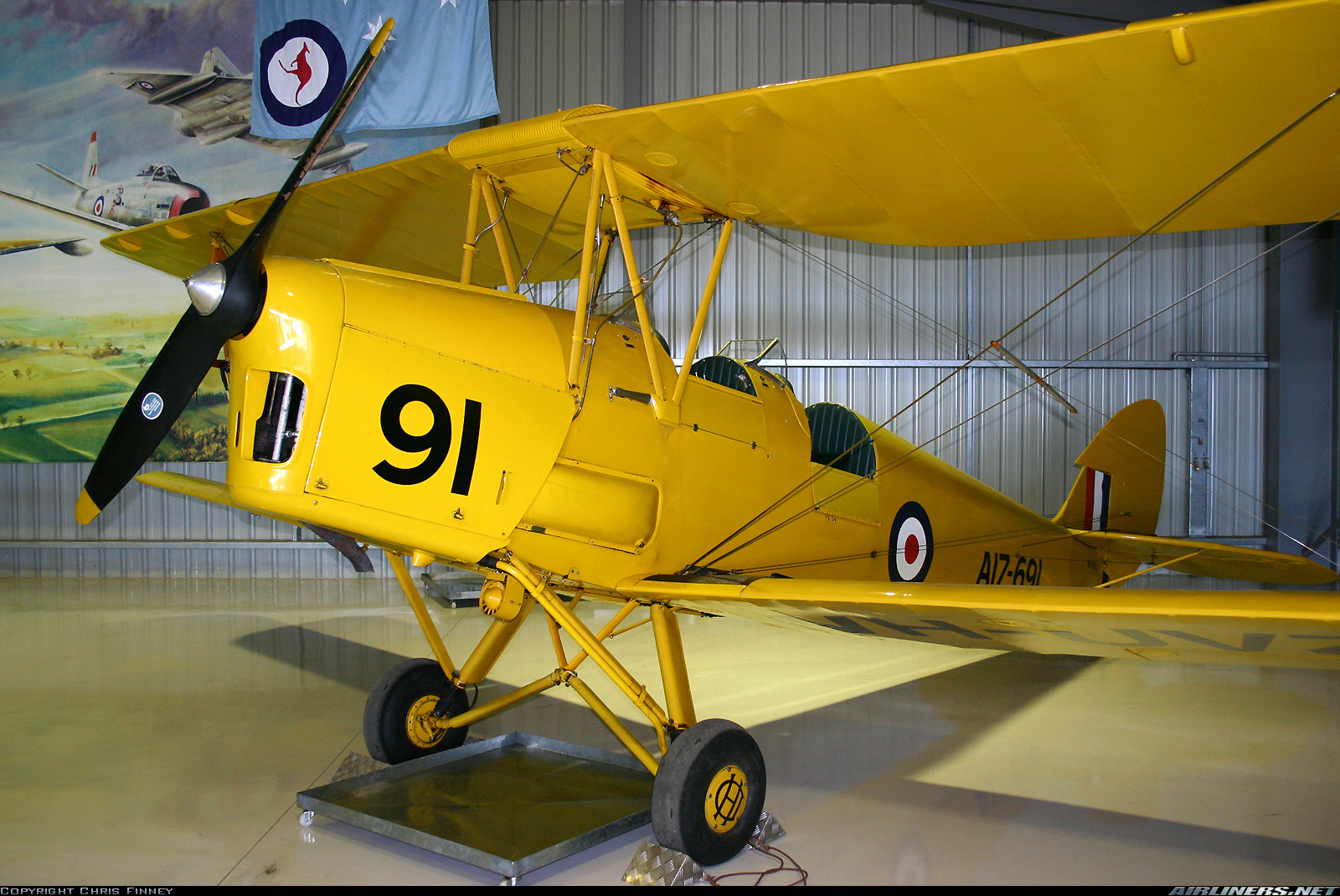
De Havilland DH82A Tiger Moth II Untitled Aviation Photo 1103136
The starting point for the DH.82 Tiger Moth was the de Havilland DH.71 Tiger Moth. [4] de Havilland had developed successively more capable Gipsy engines, and the company had produced a new low-winged monoplane aircraft to test them. This aircraft became the first aircraft to be referred to as the Tiger Moth.

De Havilland (Australia) DH82A Tiger Moth Untitled Aviation Photo 1145062
The de Havilland DH.82 Tiger Moth is a 1930s British biplane designed by Geoffrey de Havilland and built by the de Havilland Aircraft Company. It was operated by the Royal Air Force (RAF) and other operators as a primary trainer aircraft.

De Havilland (Australia) DH82A Tiger Moth Untitled Aviation Photo 2630755
De Havilland DH 82A Tiger Moth This classic British trainer made its first flight on Oct. 26, 1931. It is one of a number of models of light aircraft named for moths, in recognition of designer Geoffrey de Havilland's interest in moths and butterflies.
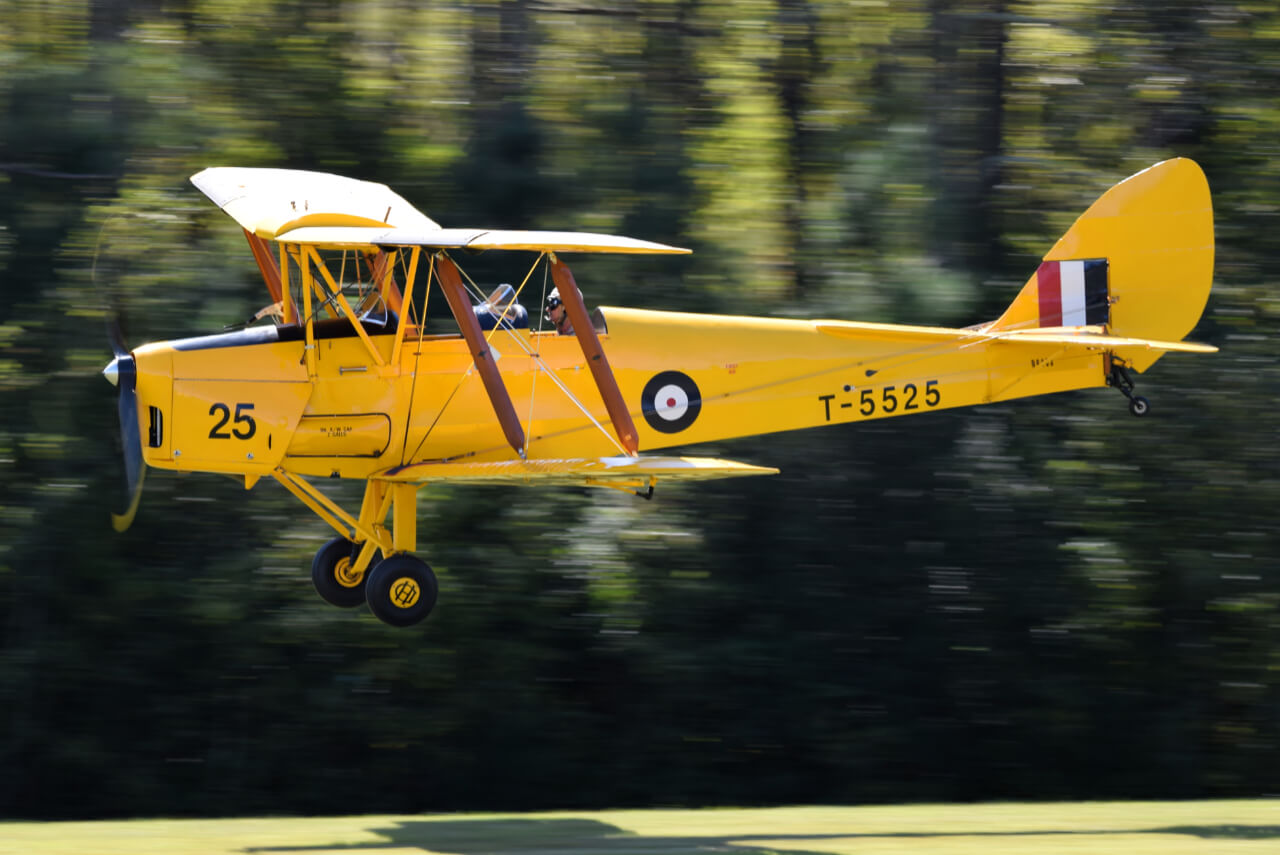
de Havilland DH.82 Tiger Moth Military Aviation Museum
The most famous of the Moths, however, for sheer numbers built (nearly 9,000), is the DH.82 Tiger Moth - a biplane trainer used during the Second World War in Britain and the Commonwealth of Nations, and the aircraft in which all Second World War RAF pilots learned to fly.. In June 1979 a rally of 63 De Havilland planes (mainly Tiger Moths).

De Havilland DH82A Tiger Moth II Untitled Aviation Photo 2175034
The de Havilland DH.82 Tiger Moth is a single-engined, biplane, taildragger aircraft with two seats in tandem configuration. It was developed principally to be used by private touring customers as well as for pilot instruction for both military and civilian operators.
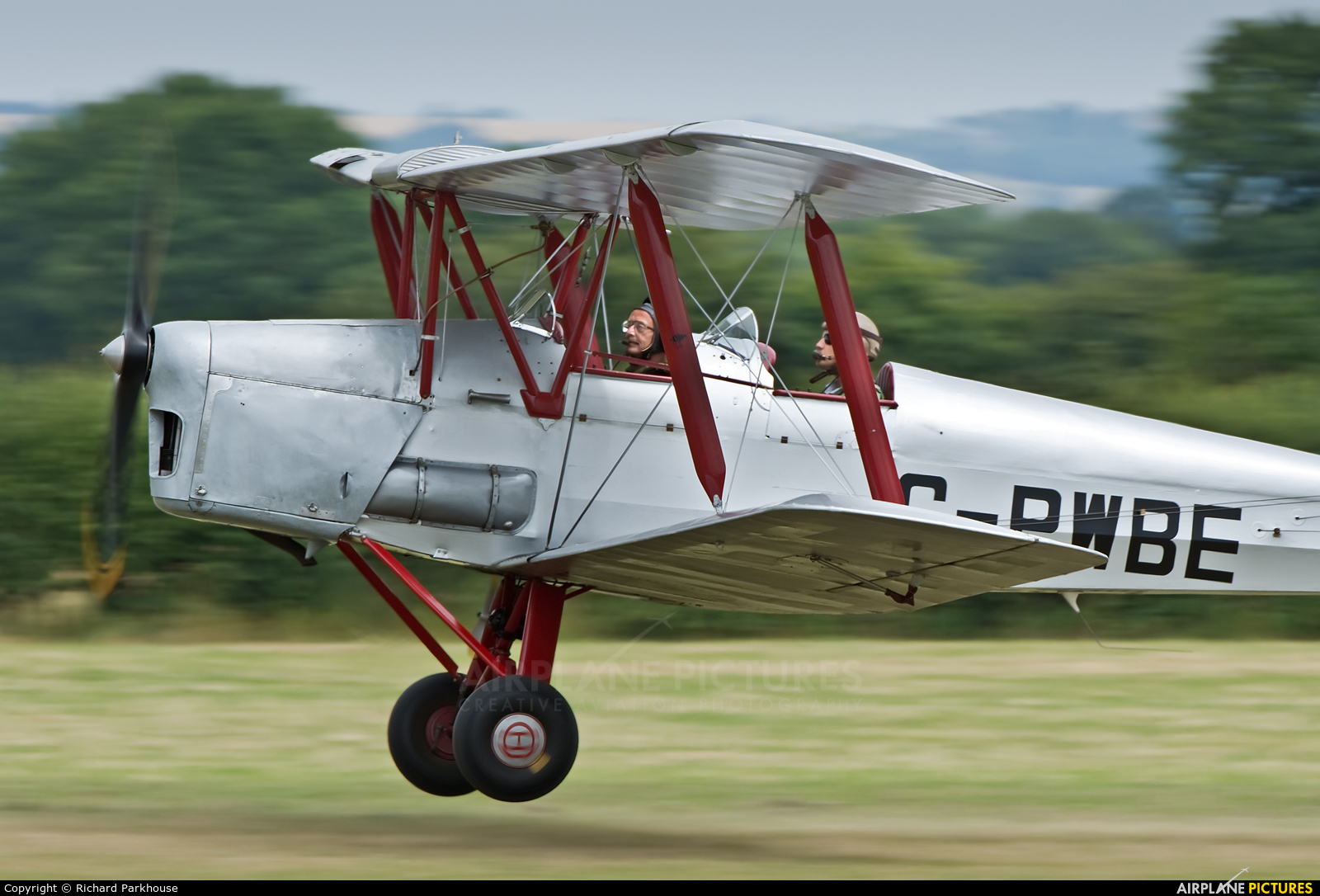
GPWBE Private de Havilland DH. 82 Tiger Moth at Lashenden / Headcorn Photo ID 1155986
The DH82 Tiger Moth was the last in a long line of biplanes built by the DeHavilland Company Ltd. The Tiger Moth first entered service with the Royal Air Force in 1931 and became the standard elementary trainer for the next two decades. The DeHavilland DH-82C is a direct successor to the DH-60 Moth and can be considered one of the most popular.

De Havilland DH82A Tiger Moth II UK Navy Aviation Photo 0223265
De Havilland Model DH-82 Tiger Moth Year 1944 Seller andrewjamesherbert Location Audley End, Essex, United Kingdom Condition Pre-owned Seller type Private Total Time 10 h Undercarriage Taildragger Seats 2 Flight Rules VFR Day Serial Number
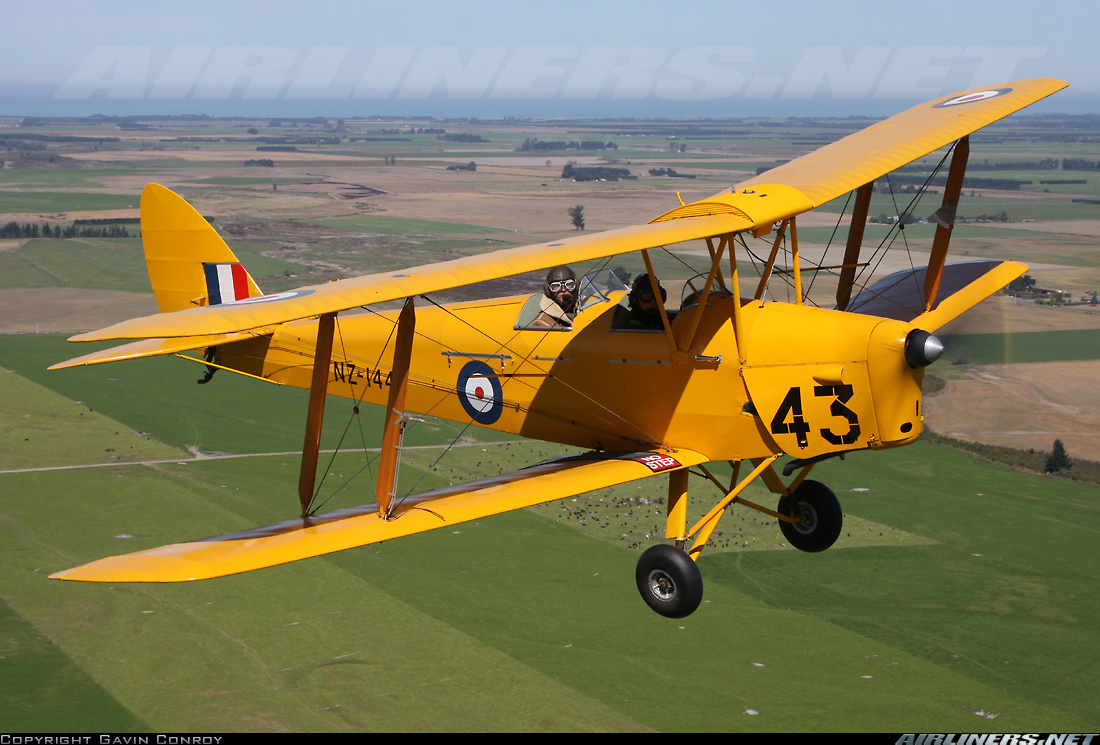
De Havilland (New Zealand) DH82A Tiger Moth II Untitled Aviation Photo 1352183
History: The deHavilland D.H. 82 Tiger Moth was developed from the D.H. 60M Gipsy Moth. First flown in October of 1931, the D.H. 82 faced stiff competition to become the basic trainer for Britain's Royal Air Force (RAF). However, after the trials were held, the Tiger Moth emerged the clear winner, with 35 of the craft being ordered.
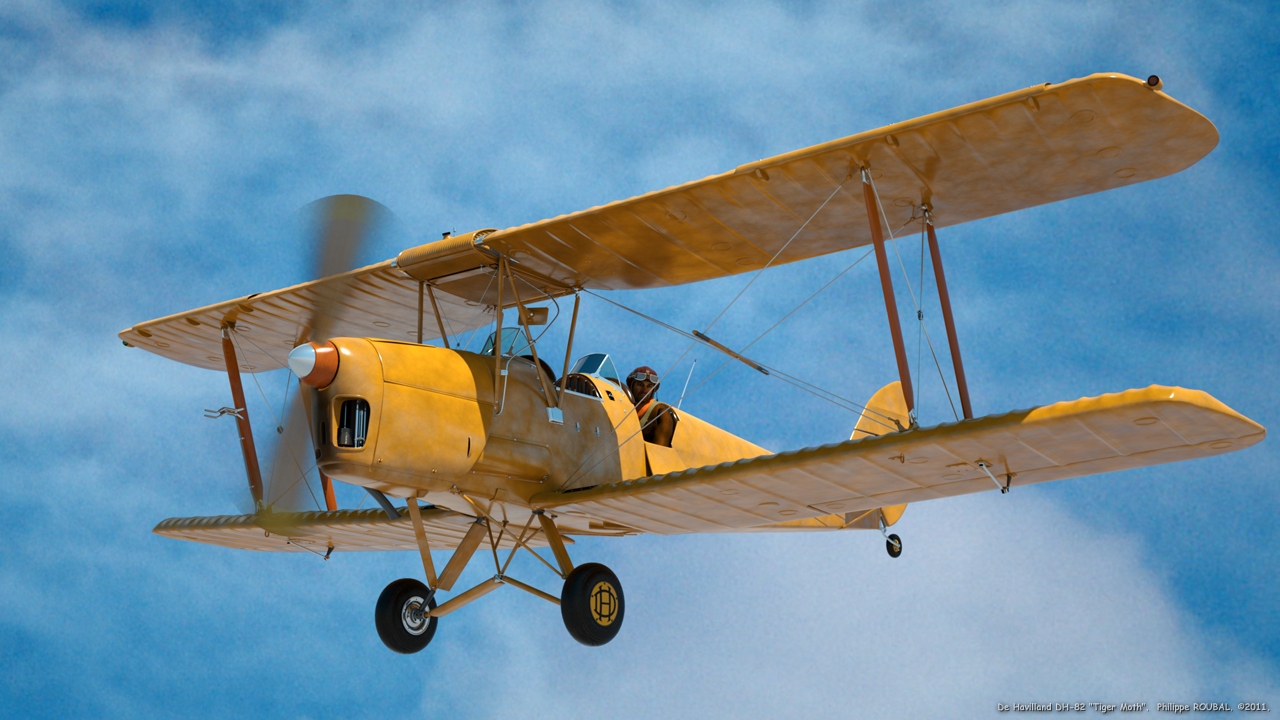
De Havilland DH.82 Tiger Moth, pictures, technical data, history Barrie Aircraft Museum
Martin Burdan takes the 'Whittakers' chocolate coloured Tiger Moth for an enthusiastic spin above Hood Aerodrome in Masterton, New Zealand.--http://www.aviat.
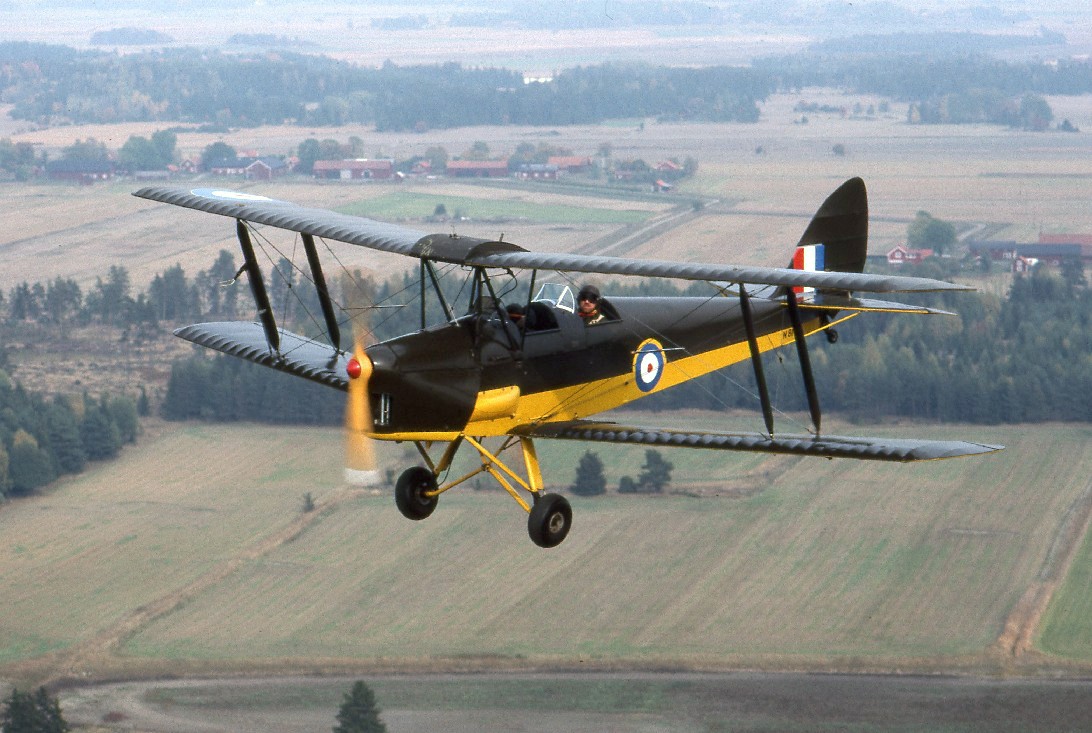
De Havilland DH.82 Tiger Moth, pictures, technical data, history Barrie Aircraft Museum
The Tiger Moth was designed in England by Geoffrey De Havilland and first flew on October 26, 1931 as the final development in a long and successful line of light 'Moth' biplanes. By 1939 more than 1,000 Tiger Moths had been produced in Britain. At the outbreak of World War II it was the fully aerobatic basic pilot trainer for the Royal Air.

De Havilland (Australia) DH82A Tiger Moth Untitled Aviation Photo 1307389
The design of the de Havilland DH.82 Tiger Moth emanated from the DH.60 series. Basically, the DH.82 was developed from the DH.60T Tiger Moth, which was a DH.60 with a Gipsy III engine, re-positioned centre-section struts ahead of the front cockpit, and an altered centre of gravity achieved by giving the mainplanes a 48 cm (19 in) sweepback.
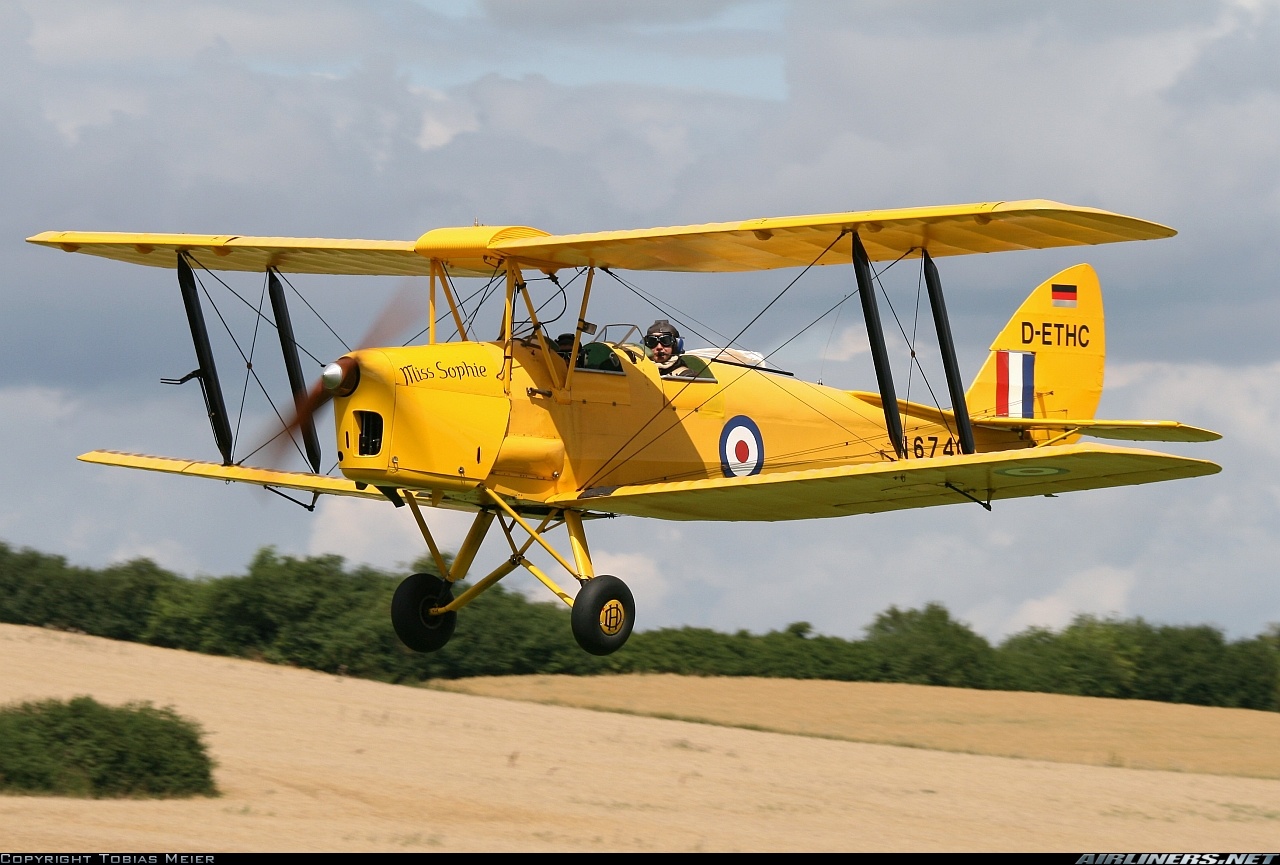
De Havilland DH82A Tiger Moth II Untitled Aviation Photo 1650744
De Havilland DH-82 Tiger Moth Warbirds of Norway, STA Stauning, Denmark PP1118608910.jpg 1,024 × 776; 459 KB De Havilland DH-82 Tiger Moth, India - Air Force JP7512509.jpg 1,200 × 900; 673 KB De Havilland DH-82 Tiger Moth, Portugal - Air Force AN0410999.jpg 1,050 × 707; 379 KB

De Havilland DH 82A Tiger Moth > National Museum of the United States Air Force™ > Display
de Havilland DH.82 Tiger Moth. The Tiger Moth was the main primary trainer used in Britain in the lead-up to WWII. It would provide many pilots their first taste of solo flight and send them on a path of preparation for combat flying. The Tiger Moth was originally designed to appeal to a civilian market interested in touring and flying club.

GFCTK Private de Havilland DH. 82 Tiger Moth at Old Warden Photo ID 1226818 Airplane
The De Havilland DH.82 Tiger Moth was a 1930s biplane operated by the Royal Air Force and others as a primary trainer. It remains a popular aircraft in civil aviation operation. DH.82A Tiger Moth DH.82A Tiger Moth Profile view DH.82A Tiger Moth flying at a 2005 airshow DH.82A Tiger Moth DH.82A Tiger Moth Belgian Air Force
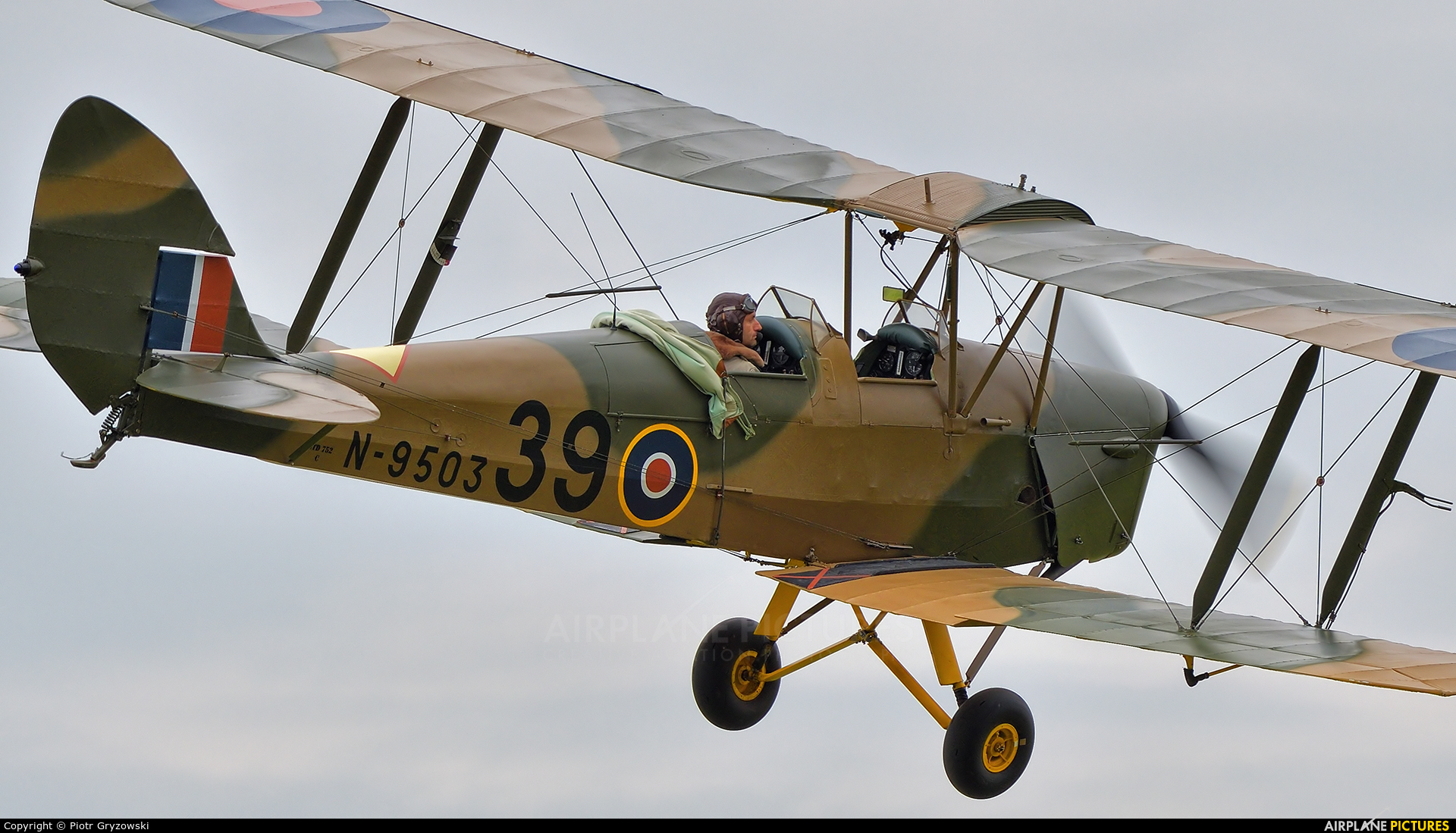
N9503 Private de Havilland DH. 82 Tiger Moth at Čáslav Photo ID 1389575
The famous de Havilland DH.82 "Tiger Moth" biplane was a dedicated military-minded basic trainer derived from the preceding DH.60T with its 120 horsepower Gipsy II series engine.